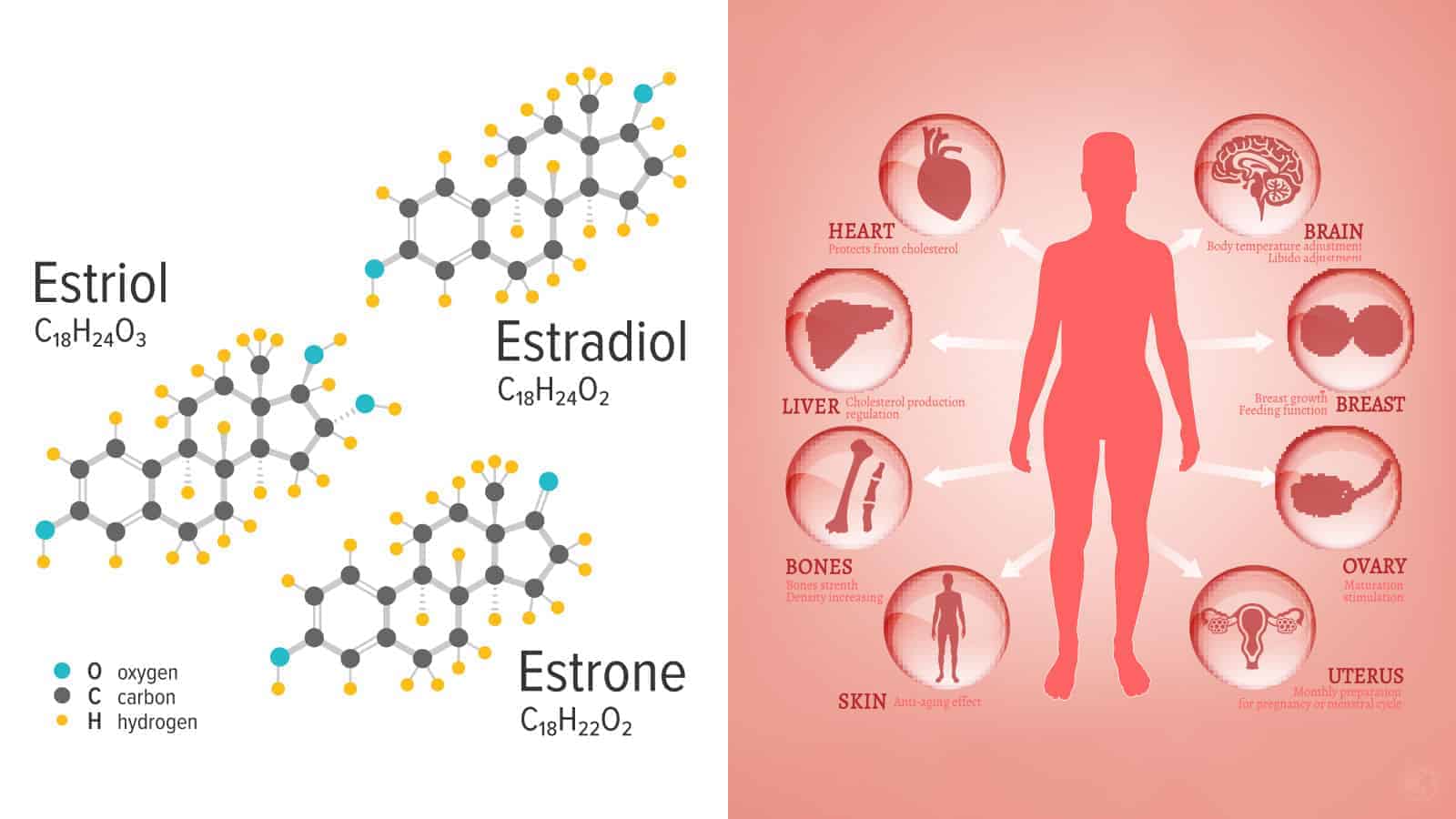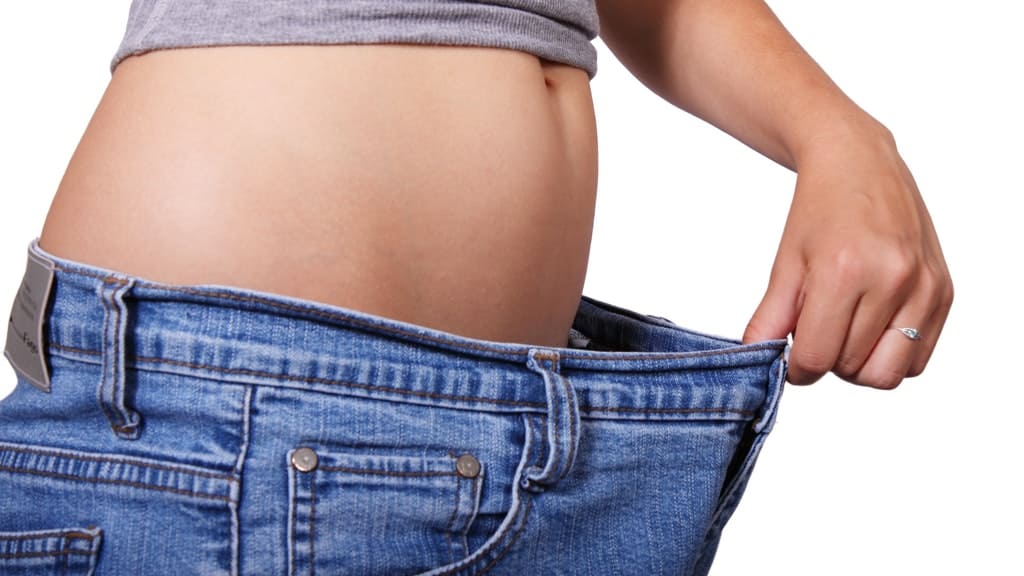Today, we live a stress-filled existence. And, we run continuously at a hectic pace. So, it’s little wonder that hormonal imbalance increases in prevalence! Many women suffer from an excess of androgens or estrogen. Unfortunately, an imbalance of either hormone triggers negative impacts
Estrogen dominance, in particular, is one of the main drivers behind painful periods. It can arise from a variety of factors, including inflammatory foods, environmental pollutants, prolonged stress, and more. Treating this condition naturally involves figuring out the root cause, which offers a much more long-lasting solution than symptom-masking medication.
SYMPTOMS OF ESTROGEN DOMINANCE
- Weight gain, particularly in the hips, waist, and thighs
- Menstrual irregularities such as uncharacteristically light or heavy bleeding
- PMS
- Fibrocystic breasts
- Uterine fibroids
- Fatigue
- Loss of sex drive
- Depression or anxiety
RISKS OF ESTROGEN DOMINANCE
Breast, uterine, and ovarian cancers can all result from chronic, untreated estrogen dominance. Breast cancer, in particular, increses at an alarming rate. In fact, one in eight women receive a diagnosis. As discussed previously, fat tissue houses estrogen. Fat cells trigger the strongest form of estrogen: estradiol. Because of its potency, estradiol is harder for the body to detoxify; this can lead to increased circulating estrogen and, consequently, harmful metabolites. (1.)
Autoimmune disease
Drastic fluctuations in estrogen, such as during childbirth and menopause, can contribute to autoimmunity by increasing the body’s inflammatory response. These events cannot be avoided; of course, however, their effects may be minimized by taking care to avoid xenoestrogens in plastic, beauty products, food, and water.
Thyroid dysfunction
Having too much estrogen increases levels of thyroid-binding globulin, a protein that allows thyroid hormones to circulate in the bloodstream. When these hormones are attached to TBG, they remain inactive. This prevents storage and conversion to active forms, which in turn disrupts metabolic processes.
Candida overgrowth
A fungus that lives in the mouth and intestines, candida helps with digestion and nutrient absorption. This beneficial organism can become pathogenic when overproduced, breaking down the intestinal barrier and causing leaky gut. Studies have shown that candida becomes stronger when exposed to estrogen. Women taking birth control or hormone replacement therapy are more susceptible to yeast infections, and this connection may explain why.
9 POTENTIAL ROOT CAUSES OF ESTROGEN DOMINANCE
Inflammatory foods
Conventional meat and dairy contain growth hormones which can disrupt the intricate balance in our bodies. Additionally, the pesticides, herbicides, and fungicides on most fruits and vegetables are endocrine-disrupting chemicals that alter hormone function and metabolism.
Water
Today, our water supply is heavily contaminated with pollutants such as fertilizers and estrogens from both livestock and pharmaceuticals. Plus, countless industrial chemicals from plant runoff and the disposal of plastics in landfills contribute to pollution in water. Coal-burning refineries also emit more than 70,000 pounds of mercury into the air every year, which finds its way into the water. Many of the aforementioned compounds can have negative hormonal implications.
Personal care products
The average person uses between 10 and 15 beauty products on a daily basis, with a total of about 130 chemicals! Makeup, lotion, shampoo, toothpaste, and soap usually contain xenoestrogens or chemicals with estrogenic activity. These are arguably more harmful than estrogens in food, as what goes on our skin can’t be detoxed by the liver. Be especially wary of the ingredient, “fragrance,” as it’s an umbrella term that can contain a number of different endocrine disruptors. Unfortunately, these products are internally regulated, so nefarious activity can slip by without question.
Gut dysbiosis
Our gut microbiome is responsible for so many internal processes, including estrogen regulation. It does this via an enzyme known as beta-glucuronidase. When gut health is compromised, such as in the case of small intestinal bacterial overgrowth (or SIBO), estrogens cannot be properly metabolized. This malfunction can put women at greater risk for breast cancer and other ailments caused by estrogen dominance.
BPA and other plastics
Plastic, no matter the source, contains xenoestrogens that can contaminate food and water stored in or touching it. Products marked “BPA free” are not safe either. Additionally, the chemicals they contain are not as well-studied. Heating or dishwashing plastic renders it even more estrogenic.
Even accepting a receipt after shopping could be compromising your hormone health!
Thermal paper is a major source of BPA, and people who handle it on a regular basis have significantly elevated levels in their urine.
Heavy metals
Just like plastics, heavy metals such as cadmium, lead, and mercury have estrogen-like properties. These compounds are dispersed all throughout the atmosphere and have been suspected as a causative factor of early-onset puberty.
Excess body fat
Storing too much body fat (namely around the hips, waist, and thighs), is one of the most commonly implicated causes of estrogen dominance. Estrogen is stored in fat cells, so being overweight keeps the hormone circulating in your bloodstream and vice versa. Fat tissue breaks down other hormones to create more estrogen, which can further the imbalance.
Hormone-replacement therapy (HRT) and birth control
HRT and the majority of oral contraceptives only contain estrogen and not progesterone, which is necessary to maintain a balanced hormonal system. Progesterone is a vital hormone that reduces anxiety, increases focus, and improves PMS symptoms. It is only produced after ovulation, which doesn’t occur on birth control. Instead, the pill contains a synthetic version known as progestin. Progestin does not offer the same benefits as progesterone, and in fact is associated with an increased risk of depression.
Additionally, the hormones in these medications are usually toxic, synthetic versions of what our bodies produce. These unnatural compounds are not easily metabolized by the liver. This can lead to DNA damage and an increased risk for breast and endometrial cancers.
Prolonged stress
Chronic stress leads the body to convert progesterone into cortisol. Low progesterone levels can lead to estrogen dominance.
HOW TO LOWER ESTROGEN LEVELS NATURALLY
- Clean up your diet. Minimize or eliminate conventional meat, dairy, and produce. Instead, opt for grass-fed, pasture raised, and organic to reduce your exposure to exogenous hormones and pesticides. If buying all organic fruits and vegetables isn’t an option, check out the EWG’s Dirty Dozen list. This way, you can eliminate the worst offenders at least.
- Invest in a water filter. Xenoestrogens are widespread in the water supply, so you’ll want to install filters on your taps and showerheads as well.
- Audit your personal care products. Scrutinize the ingredient lists of your shampoo, toothpaste, makeup, and other beauty products, looking out for the term “fragrance” in particular. If you don’t have time to be a detective, just use the EWG’s database to see how your favorite items stack up.
- Avoid plastic. Whether it’s BPA-free or not, plastic contains xenoestrogens that can negatively affect hormone levels. Use glass food storage containers instead.
- Consider alternatives to HRT and birth control. Both of these methods can contribute to estrogen dominance. If you absolutely must take hormones, the bioidentical versions are much more similar to what our bodies produce.
- Manage your stress. Adopt a yoga or meditation practice, and ensure you’re getting adequate sleep each night to prevent progesterone from turning into cortisol.
- Seed cycle. Seed cycling is a practice in which women rotate consumption of four different seeds throughout their menstrual cycle. Supporters of this protocol claim it helps naturally balance progesterone and estrogen: the two main female reproductive hormones. In a healthy cycle, estrogen is highest during the first half; progesterone during phase two. When this intricate hormonal dance becomes imbalanced, women may experience menstrual irregularities. This is because estrogen and progesterone have very different functions in the body and certain levels must be maintained for optimal function.(2.)
HOW TO SEED CYCLE
Days 1-14:
- 1-2 tbsp of raw, organic, freshly-ground flax seeds daily
- 1-2 tbsp of raw, organic, freshly-ground pumpkin seeds daily
Both flax and pumpkin seeds contain high concentrations of omega-3 fatty acids. These essential nutrients increase uterine blood flow and promote healthy cell membranes. Additionally, flax seeds have polyphenols called lignans, which bind to excess estrogen which is unopposed by progesterone during the follicular phase. Pumpkin seeds, on the other hand, are rich in zinc. This trace mineral supports healthy progesterone production when the second phase of your cycle rolls around. (3.)
Days 15-28
- 1-2 tbsp of raw, organic, freshly-ground sesame seeds daily (or tahini)
- 1-2 tbsp of raw, organic, freshly-ground sunflower seeds daily (or sunflower seed butter)
Sesame seeds also contain lignans, which block excess estrogen during a time when progesterone is supposed to be higher. Sunflower seeds contain selenium, a trace mineral that aids in the detox of excess hormones by the liver. This is an essential step because an overloaded liver can cause estrogen or progesterone to recirculate in the body.
- Ensure efficient liver detox Liver detoxification is how our bodies get rid of excess estrogen and prevent it from turning into harmful metabolites. Foods such as olive oil, walnuts, garlic, beets, citrus, turmeric, cruciferous vegetables, and green tea can improve liver detoxification. (3.)
FINAL THOUGHTS ON HOW TO LOWER ESTROGEN LEVELS NATURALLY
Hormones, particularly those governing the female reproductive system, are extremely sensitive to factors such as diet, exercise, stress, and environmental toxins. Even the slightest changes can lead to an imbalance, which often manifests as excess male hormones.
Dietary modifications, stress management, gentle exercise, and ensuring adequate sleep are the pillars of a hormone-friendly lifestyle. Additional support such as supplementing with certain seeds and switching to natural beauty products can aid in the healing process.



















